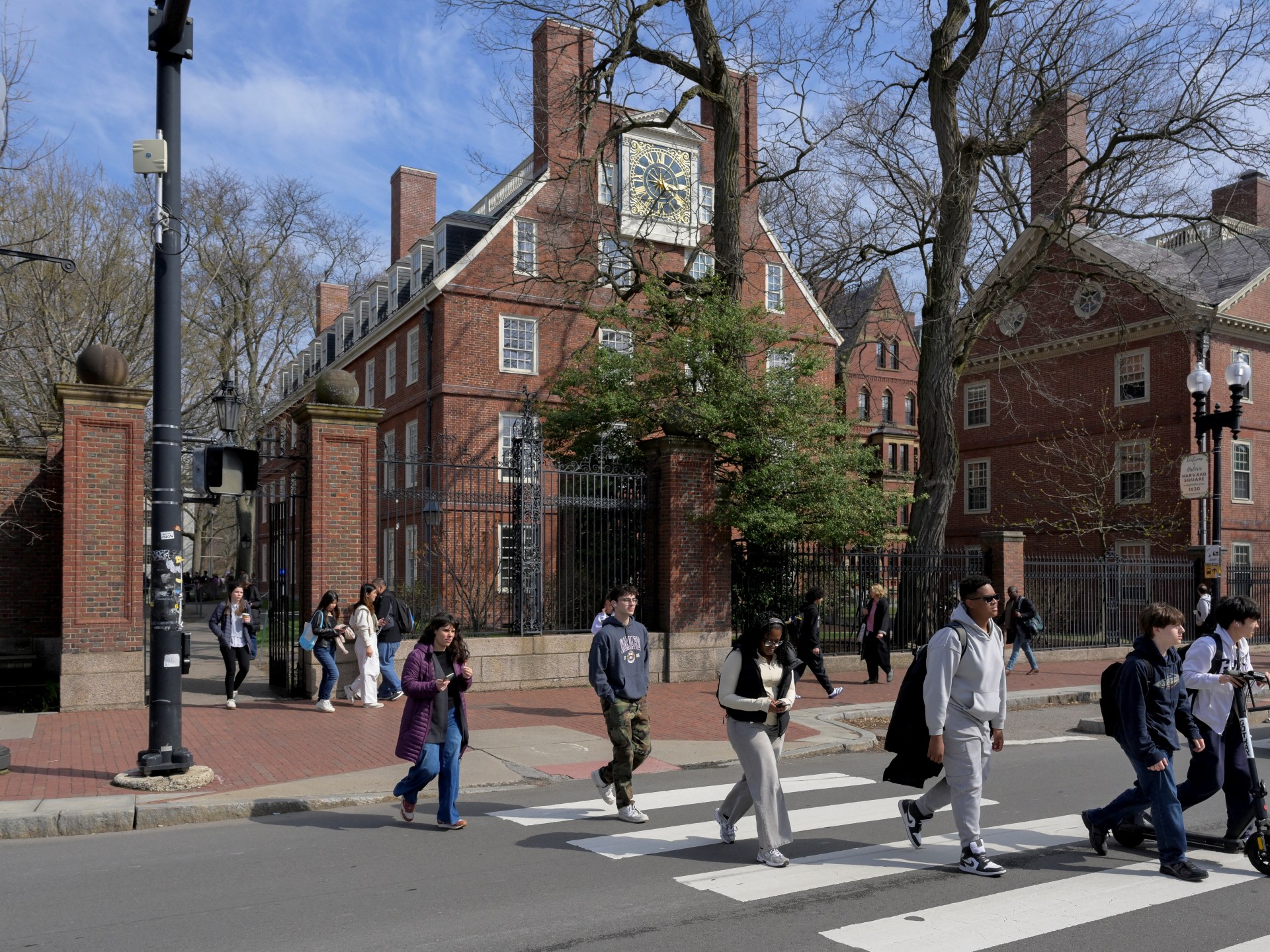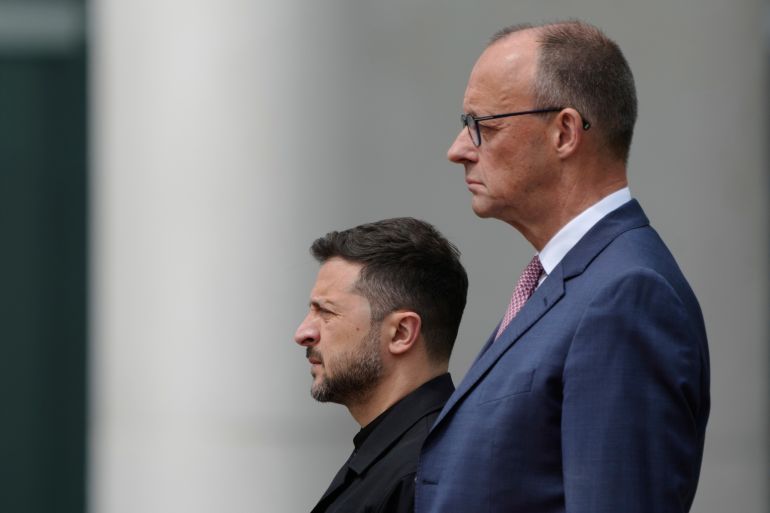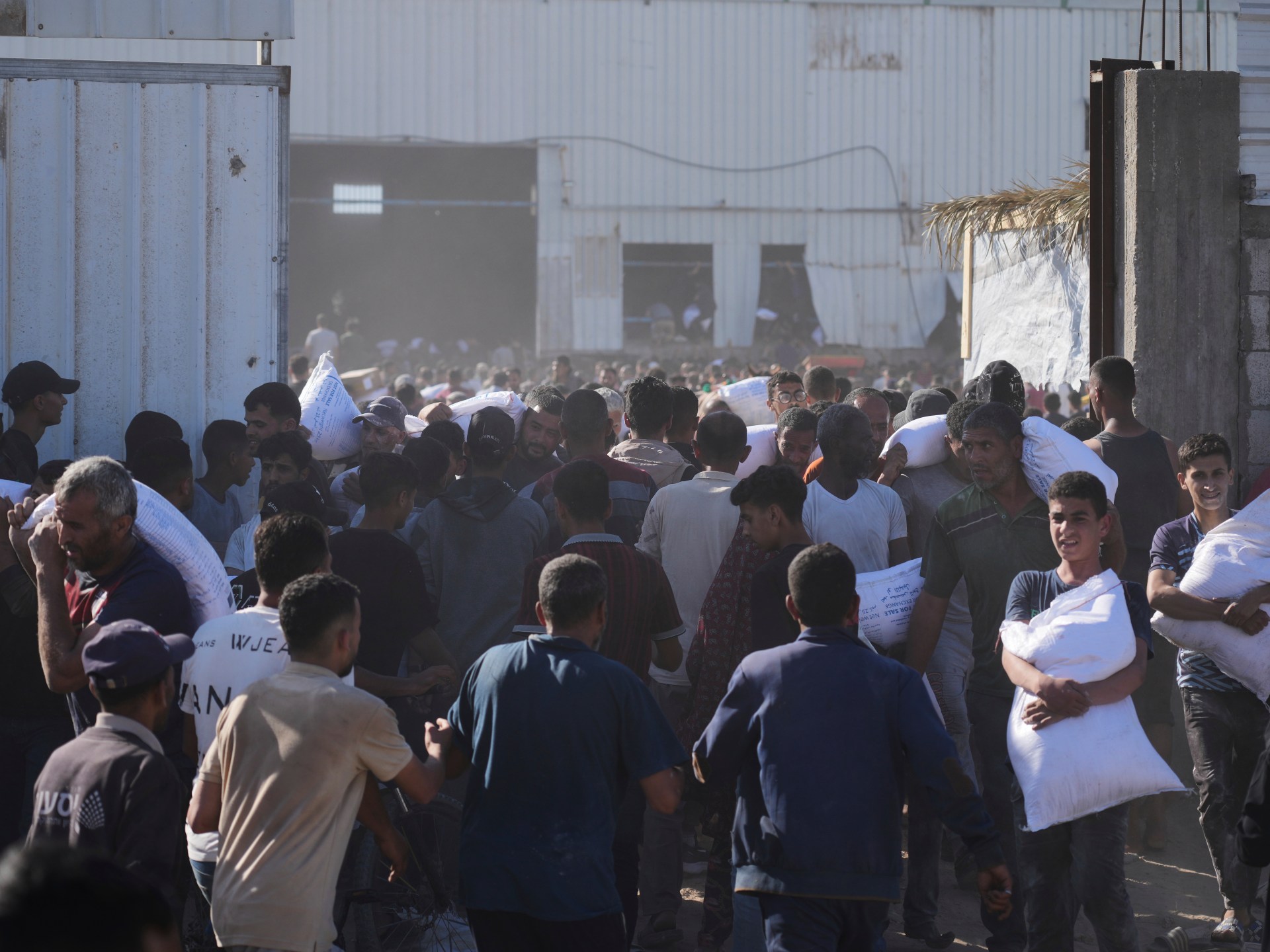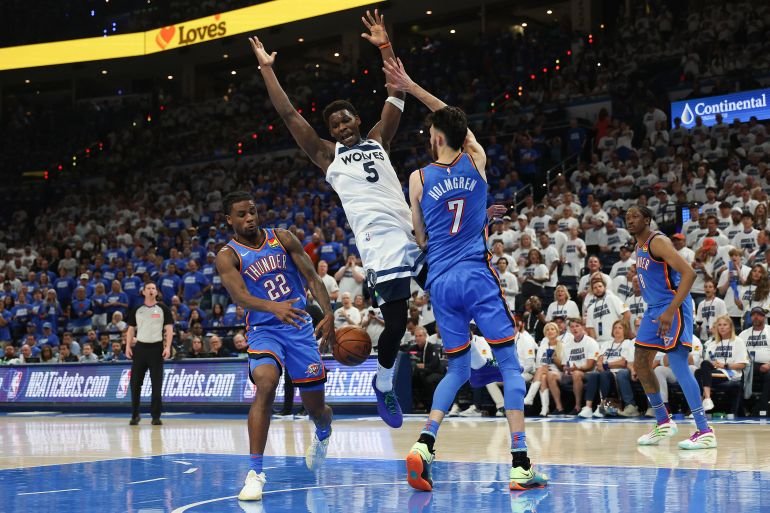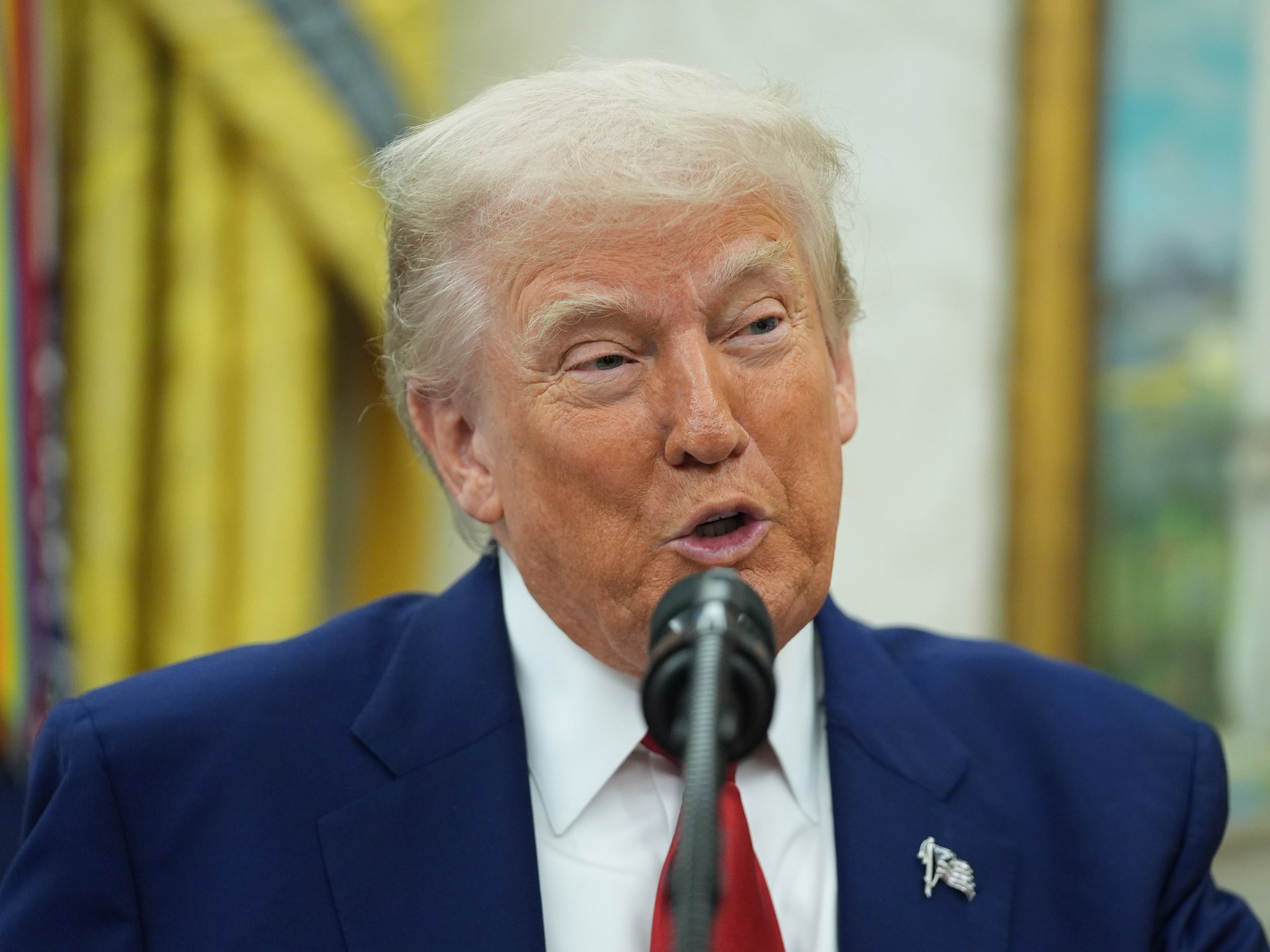According to President Donald Trump, Harvard University won’t reveal its international students to the US government.
The federal government’s approval of Harvard, which allows it to enroll international students, was removed on May 22 by the Trump administration. The administration’s effort was temporarily blocked by a federal judge on May 23.
Trump stated to reporters on May 25 that “some of the issues with Harvard are that there are about 31 percent of foreigners coming to Harvard, but they won’t tell us who the people are.” We will determine whether those foreign students are acceptable and provide a list of them. Many people will, I assume, be alright. And I’m assuming there will be many bad students there.
According to the Department of Homeland Security (DHS), Harvard did not provide the information the organization needed about its international students. That was one of the reasons Harvard’s certification was revoked, according to DHS. In its lawsuit against the Trump administration, Harvard, however, disagreed with that.
The decision regarding Harvard’s compliance with providing DHS with the additional information requested is still undetermined. DHS inquired about student activities, including “illegal” and “dangerous or violent activity.” Immigration law experts disagree with Trump’s claim that the US government is unaware of the identities of Harvard’s international students.
The Student and Exchange Visitor Program, or SEVP, is required by the Department of Homeland Security for US colleges and universities that enroll international students.
Every student visa holder’s information is stored in SEVP’s database. Addresses, classes, grades, jobs, social media accounts, and many other things, according to Charles Kuck, an Emory University law professor and immigration attorney from Atlanta.
According to court records, Harvard has been granted the right to enroll international students since 1954. The university is required to provide the US government with detailed information about its international students as part of the certification process.
Every two years, schools renew their SEVP certification. Harvard claimed in its lawsuit that its compliance with the university’s “seamless recertification across this period, which included more than 14 presidential administrations.”
Additionally, all foreign students must apply for and receive student visas through the State Department in order to enter the US. A person must be enrolled in a SEVP-certified university to be eligible for a student visa. Students must provide the US government with in-depth biographical information during the application process for a visa.
A White House spokesman said Trump was “making a simple ask” for Harvard to abide by the government when we asked for comment.
The Student and Exchange Visitor Program: What Is It?
According to the DHS website, the Student and Exchange Visitor Program “collects, maintains, analyses, and provides information so only legitimate foreign students or exchange visitors can enter the United States.” Additionally, SEVP makes sure that all institutions that accept students from other nationalities are certified and adhere to federal laws and regulations.
The Student and Exchange Visitor Information System, which manages records for foreign students and accredited universities, is managed by DHS as part of the program. What records must universities maintain and report in accordance with immigration law to maintain certification.
According to Sheila Velez Martnez, a professor of immigration law at the University of Pittsburgh, “US entry and exit data, US residential address changes, program extensions, employment notifications, and program of study changes” The US government has access to this information, the statement states.
Students are not granted visas by the certification program. Visas are issued by the state department. A person must complete a form and schedule an interview before applying for a student visa. Students are required to provide biographical and employment information, as well as information about their families, and respond to security questions, as well as information about their criminal histories as part of the application process.
The Trump administration claims Harvard provided no information to international students.
Homeland Security Secretary Kristi Noem sent a letter to Harvard a  on April 16 asking for details on every international student enrolled at the university. Noem requested “relevant information” regarding “illegal activity,” “dangerous or violent activity,” “known threats to students or university personnel,” and “known deprivation of rights of other classmates or university personnel.”
Noem claimed that disobeying the request would result in a “voluntary withdrawal” from the SEVP certification program.
According to Bunnell’s email, which is included in the court filing, on April 30, a Harvard lawyer, reacted to Homeland Security with information about 5, 200 international students.
The university claimed it was not attempting to revoke the certification and that, while some Noem’s requests used terms that are not defined in the immigration law that require information from universities, “Harvard is committed to good faith compliance and is producing responsive materials that we believe are reasonably required” by law.
The information included student identification numbers, names, birthdates, nationalities, and enrollment details, such as academic status, coursework, and credit hours, according to Harvard’s lawsuit. In an email to DHS from Harvard, Harvard also provided details on international students who left and why they did so, which could include “a range of reasons, including but not limited to disciplinary action.”
DHS responded on May 7th, claiming that the information Harvard provided “does not completely fulfill the Secretary’s request.” It reaffirmed its original request.
On May 14, Harvard responded by stating that it had “not been aware of any criminal convictions” of international students and had identified three students with disciplinary consequences.
Harvard claimed it did not find any victims of students who violated the rights of their classmates, faculty, or staff.
Noem informed Harvard that its certification had been revoked on May 22 in a letter to the university.
You have lost your right to access information because you have refused to comply with numerous requests to provide it to the Department of Homeland Security.
Our decision
Trump claimed that the university “refuses” to disclose who its international students are.
Harvard and all other accredited universities must provide the US government with in-depth biographical information about each international student who enrolls at their institution. that includes information about the coursework they are taking, as well as their names, addresses, and contact information.
Additionally, all foreign students must obtain student visas before entering the US. Students who have enrolled in a government-certified university must apply through the State Department in order to receive these. Additionally, students must provide the federal government with biographical and security information during that process.
